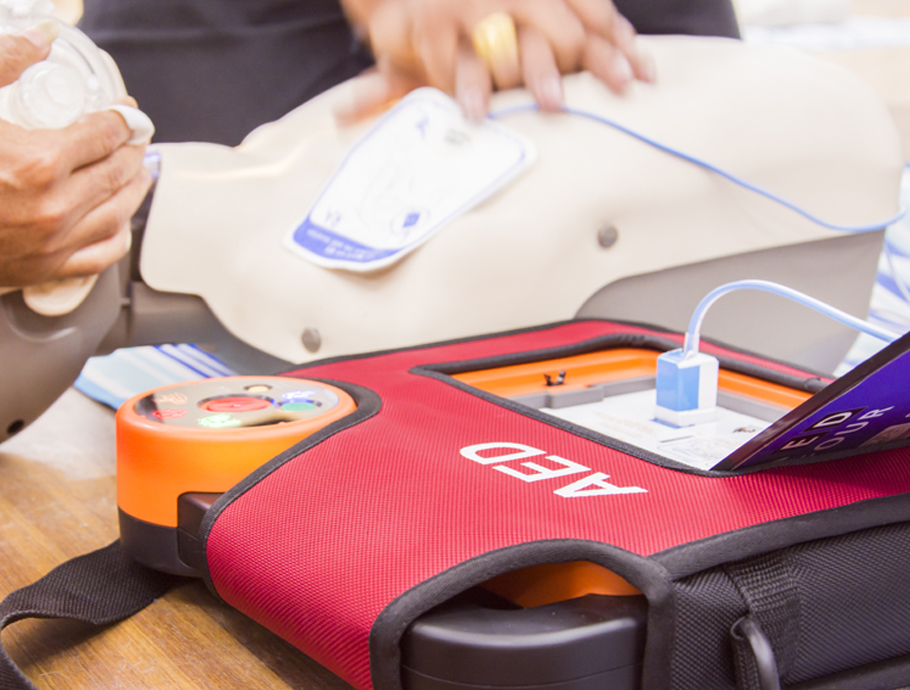
Automated External Defibrillator (AED)
Many states have enacted, or are considering, legislation that requires the placement of automated external defibrillators (AEDs) in all health clubs. An AED is a battery-driven device used to administer an electric shock through the chest wall to the heart of a person who has gone into cardiac arrest.

Issue #1: Staffing requirements
Some laws that mandate AEDs in health clubs also require a person trained in its use to be on staff. Because of these laws, if a cardiac arrest occurs at a club that has an AED but no one is on duty that is trained to use it, the club could be found liable for negligence. This requirement becomes problematic for 24-hour health clubs, which are unstaffed during certain hours.
Issue #2: Adequate compliance time
Some laws do not provide enough time for health clubs to acquire an AED. Since most health clubs primarily employ part-time staff, coordinating and administering AED training can be a lengthy process.
Issue #3: Liability protection
Many club owners and employees are concerned that having an AED on the premises will increase their responsibility, thereby increasing their risk of liability. While there is a federal law (the Cardiac Arrest Survival Act of 2000) and many states have “Good Samaritan” laws, there is still much gray area regarding whether an employee or club owner could be held liable for the injury or death of a club member.
Many people are given a false sense of security from their state’s “Good Samaritan” laws due to the fact that these laws only guarantee protection for volunteers. It is not entirely clear whether a club employee and/or owner could be classified as a volunteer. Since a health club employee, instructor, or owner offering help in an event of SCA is seen by many as an implied expectation of their employment, a court may not recognize such persons as protected by their state’s Good Samaritan law.
Need more information? Contact IHRSA Public Policy via email or call 617-951-0055.